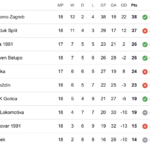The two governments say they are ready to improve cooperation.
Croatian Prime Minister Andrej Plenković and Chairman of the Council of Ministers of Bosnia and Herzegovina (BiH) Denis Zvizdić confirmed today in Sarajevo that the governments of the two countries were firmly committed to strengthening cooperation in the spirit of good neighbourly relations. They also announced they would make every effort to resolve the outstanding issues, reports Večernji List on 7 July 2017.
After a joint session of the Croatian government and the Council of Ministers, the ministers signed the European partnership agreement and the agreement on mutual protection of classified information, a protocol on the search for missing persons, as well as a cooperation agreement in the field of tourism and a memorandum of cooperation in the area of youth care.
The two prime ministers said this was a concrete indication of willingness to cooperate, but they also pointed out that they had discussed all open questions. “We have touched on all the important issues in relations between Croatia and Bosnia,” Plenković told reporters after the session, pointing out that there were more than fifty points on the agenda.
Plenković stressed that for Croatia there was no more important state than BiH, and the Croatian government wanted to resolve all possible open issues as quickly as possible, and at the same time wanted to support the efforts that BiH would be a functional state on the road to membership of the European Union. This should be helped by the agreement on European partnership. Based on that document, Croatia will provide BiH with assistance in meeting the conditions for obtaining the candidate status for EU membership.
Plenković recalled that Croatia was traditionally the most important foreign trade partner for Bosnia and Herzegovina and that six billion euros had been invested in that country from Croatia in the last several years.
Croatian Prime Minister emphasised that it was important for Croatia to send a message of concern for Croats in BiH as an equal and constituent people. In this regard, he explained, the Croatian government expects the implementation of changes to the BiH electoral law which will ensure the protection of interests and equality of the Croat people in that country.
Zvizdić stressed that it was in the interest of his country to improve cooperation with Croatia. He confirmed that an agreement was reached on the opening of new border crossings between the two countries which should facilitate communication, in particular for the population in the border areas, which is a concrete indication of the goodwill to solve problems.
Among topics that “burden the relations between the two countries”, Zvizdić mentioned the environmental protection, the nuclear waste disposal site and the resolution of property relations. “The general assessment of our relationships is that they are extremely friendly. Croatia is a country that vigorously lobbies for the realisation of our foreign policy goals,” Zvizdić said.
Commenting on the fact that the Parliament of Bosnia and Herzegovina decided to reopen the issue of the construction of the Pelješac Bridge, Zvizdić explained that his government would not interfere in the internal affairs of other states and only wanted to ensure the right of access to open sea. “We are looking at this issue from the aspect of having access to open sea in accordance with the UN Convention on the Law of the Sea,” Zvizdić said. He added that BiH has not yet defined what will be done with the Neum Bay and what will be built there, so for now only wants to ensure the possibility of entry and exit of ships into its inland waters.
Prime Minister Plenković stated that the Pelješac Bridge remained extremely important for Croatia because it will link its sovereign territory. “Everything Croatia is doing is in line with international law and the spirit of good neighbourly relations,” said Plenković, adding that he was confident that open issues would be clarified in a dialogue with the representatives of BiH.
Responding to the journalist’s question about war crimes and indictments against Croats, Plenković explained that they wanted to avoid the impunity for perpetrators of such acts, but that Croatia, in the framework of cooperation with BiH, expects an exchange of information and an indiscriminate approach in this regard. “I do not expect these issues to burden our relations,” said Plenković.
It has been confirmed that members of the two governments also discussed the problem of terrorism. Zvizdić said that terrorism was a global problem that no one was protected from, and he again criticised statements made by Croatian President Kolinda Grabar-Kitarović about the dimensions of the problem of ISIS fighters returning to Bosnia and Herzegovina. “Unfortunately, in recent years, we are witnessing statements by officials from the region, including the Croatian President, who talks about terrorism in Bosnia and Herzegovina. My message is that they should first solve problems in their own backyard and only then look at the neighbours,” Zvizdić said.







